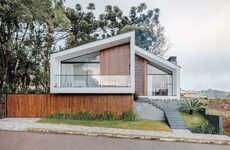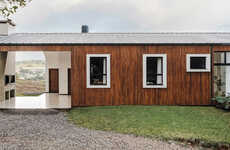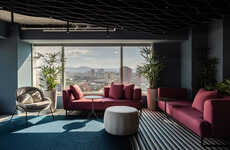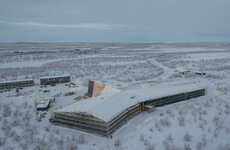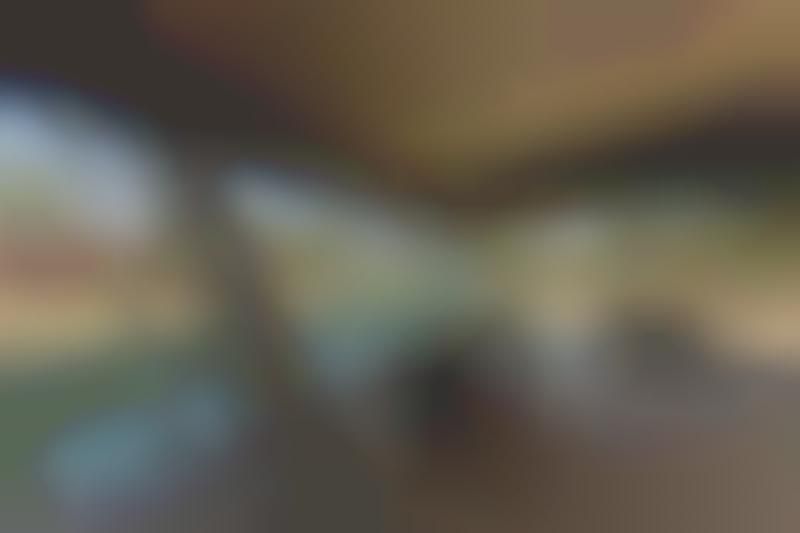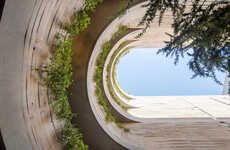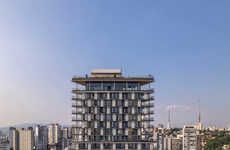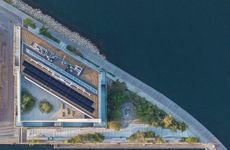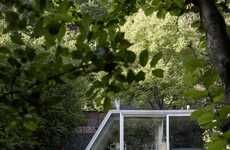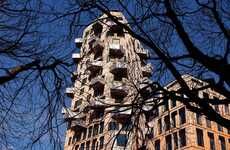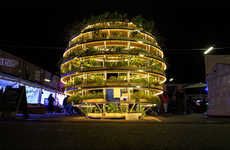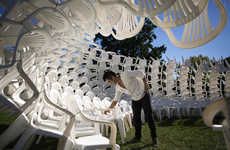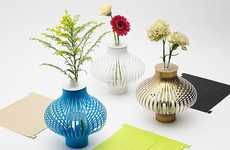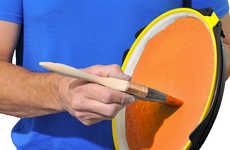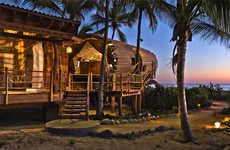
The Sebrae Bonito Headquarters Juts Out at Aggressive Acute Angles
References: decamillo.br & archdaily
The new Sebrae Bonito headquarters in Bonito, Brazil, has an aggressively sharp triangular design that betrays its purpose as a company that fosters the growing industry of ecotourism in the region. Nonetheless, the building's design, which was created by Gil Carlos de Camilo, is striking enough to pull people toward that noble endeavor.
When viewed from overhead, the Sebrae Bonito building forms a perfect equilateral triangle. While such a shape is already sharp, the base of the building is smaller than the roof, causing the walls to jut outward as they rise. This expansive feature serves to exaggerate the incision of the building's lines.
Though aggressive in appearance, Sebrae Bonito stayed true to its ecological roots in construction. For instance, the structure is made predominantly from trusses and metal pillars to limit the environmental impact of its materials.
When viewed from overhead, the Sebrae Bonito building forms a perfect equilateral triangle. While such a shape is already sharp, the base of the building is smaller than the roof, causing the walls to jut outward as they rise. This expansive feature serves to exaggerate the incision of the building's lines.
Though aggressive in appearance, Sebrae Bonito stayed true to its ecological roots in construction. For instance, the structure is made predominantly from trusses and metal pillars to limit the environmental impact of its materials.
Trend Themes
1. Sharp Triangular Architecture - The trend of sharp triangular architecture presents an opportunity for architects and designers to create visually striking buildings that push the boundaries of traditional construction methods.
2. Ecotourism Industry - The rising industry of ecotourism offers opportunities for businesses to develop sustainable and environmentally friendly destinations and experiences that cater to nature-conscious travelers.
3. Sustainable Construction Materials - The trend towards using sustainable construction materials such as trusses and metal pillars presents innovative opportunities for companies to reduce the environmental impact of building projects.
Industry Implications
1. Architecture and Design - The architecture and design industry can explore the use of sharp triangular buildings to create visually appealing and futuristic structures that capture attention and stand out from traditional designs.
2. Ecotourism and Travel - The ecotourism and travel industry can capitalize on the growing interest in sustainable and nature-oriented experiences, offering unique destinations and activities that align with eco-conscious consumer preferences.
3. Construction and Building Materials - The construction and building materials industry can focus on developing and promoting sustainable materials, such as trusses and metal pillars, that reduce the environmental impact of construction projects and align with eco-friendly building practices.
2.3
Score
Popularity
Activity
Freshness


